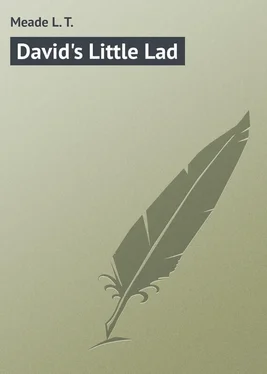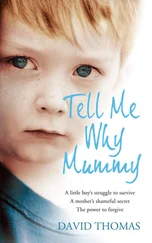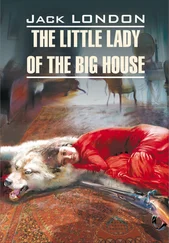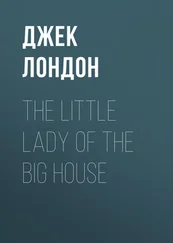L. Meade - David's Little Lad
Здесь есть возможность читать онлайн «L. Meade - David's Little Lad» — ознакомительный отрывок электронной книги совершенно бесплатно, а после прочтения отрывка купить полную версию. В некоторых случаях можно слушать аудио, скачать через торрент в формате fb2 и присутствует краткое содержание. Издательство: Иностранный паблик, Жанр: foreign_prose, на английском языке. Описание произведения, (предисловие) а так же отзывы посетителей доступны на портале библиотеки ЛибКат.
- Название:David's Little Lad
- Автор:
- Издательство:Иностранный паблик
- Жанр:
- Год:неизвестен
- ISBN:нет данных
- Рейтинг книги:3 / 5. Голосов: 1
-
Избранное:Добавить в избранное
- Отзывы:
-
Ваша оценка:
- 60
- 1
- 2
- 3
- 4
- 5
David's Little Lad: краткое содержание, описание и аннотация
Предлагаем к чтению аннотацию, описание, краткое содержание или предисловие (зависит от того, что написал сам автор книги «David's Little Lad»). Если вы не нашли необходимую информацию о книге — напишите в комментариях, мы постараемся отыскать её.
David's Little Lad — читать онлайн ознакомительный отрывок
Ниже представлен текст книги, разбитый по страницам. Система сохранения места последней прочитанной страницы, позволяет с удобством читать онлайн бесплатно книгу «David's Little Lad», без необходимости каждый раз заново искать на чём Вы остановились. Поставьте закладку, и сможете в любой момент перейти на страницу, на которой закончили чтение.
Интервал:
Закладка:
“And I have my little lad.”
“Of course – I forgot baby.”
“Yes, Gwladys,” said David, rousing himself and shaking off his depression, “I have my son, and he won’t leave me, thank God. I am sorry you find your home dull, my dear. I have always wanted you to love it, there is no place like it on earth to me.”
He took my hand very gently, and removed it from his arm, then walked with great strides into the house. His face and manner filled me with an undefined sense of gloom and remorse.
I followed him like a guilty thing. I would not even go into the drawing-room to bid mother good-night, but went at once up to my own room. When I got there, I locked the door; this conversation had not tended to raise my spirits. As I sat on my bed, I felt very uncomfortable.
What an old, old room it was, and all of oak, floor, walls, ceiling, all highly-polished, and dark with the wear of age. Other Gwladys Morgans had carved their names on the shutters, and had laid down to rest on the great four-post bedstead. Other daughters of the house had stood in the moonlight and watched the silent shining of the waves. Had they too, in their ignorance and folly, longed for the bustle and unrest of the great wide world, had they, too, felt themselves buried alive at Tynycymmer? With David’s face in my memory, I did not like these thoughts. I would banish them. I opened a door which divided my room from the nursery, and went noisily in. What an awkward girl I was! I could do nothing like any one else; every door I opened, shut again with a bang, every board my foot pressed, creaked with a sharp note of vengeance. Had nurse Gwen been in the nursery, what a scolding I should have merited, but nurse Gwen was absent, and in the moonlit room I advanced and bent over a little child’s cot. In the cot lay a boy of between one and two, a rosy, handsome boy, with sturdy limbs, and great dark-fringed eyes; he was sleeping peacefully, and smiling in his sleep; one little fat hand grasped a curly, woolly toy dog, the other was flung outside the bedclothes; his little pink toes were also bare. With undefined pain still in my heart, and David’s face vividly before me, I bent down and kissed the child. I kissed him passionately, forgetting his peculiar sensitiveness to touch. He started from his light slumbers with a shrill baby cry, his dark eyes opened wide. I took him out of his crib, and paced up and down with him. For a wonder I managed to soothe him, skilfully addressing him in my softest tones, rubbing my forehead against his soft cheek, and patting his back. The moon had left this side of the house, and the room was in complete shadow, but I did not think of lighting a candle, for to the child in my arms the darkness was too dense for any earthly candle to remove; he was David’s little lad, and he was blind.
Chapter Three
Some Day, you will See that he is Noble
I have said that David’s great characteristic was strength, but by this I do not at all mean to imply that he was clever. No one ever yet had called David clever. When at school he had won only second or third class prizes, and at Oxford very few honours had come in his way.
He had a low opinion of his own abilities, and considered himself a rather stupid, lumbering kind of fellow, not put into the world to make a commotion, but simply, as far as in him lay, to do his duty.
David was never known to lecture any one; he never, in the whole course of his life, gave a piece of gratuitous advice; he could and did advise when his advice was directly demanded, but he was diffident of his own opinion, and did not consider it worth a great deal. To the sinners he was always intensely pitiful, and so gentle and sorrowful over the erring, that many people must have supposed he knew all about their weaknesses, and must once have been the blackest of black sheep himself.
No, David possessed none of the characteristics of genius; he was neither clever nor ambitious. To be in all men’s mouths, and spoken highly of by the world, would not have suited him at all; he cared, we some of us thought, almost too little for man’s opinion, and I have even on one occasion heard Owen call him poor-spirited.
But all the same, I am not wrong in saying that David’s great, and grand, and distinguishing characteristic was strength. He possessed strength of body, soul, and spirit, to a remarkable degree. Long ago, in the past ages, there were men of our house, men who ate roast beef, and quaffed beer and cider, and knew nothing of the weak effeminacy of tea and coffee; these were the men who would laugh at a nerve ache, who possessed iron frames, and were of goodly stature. Of course we degenerated since then, our lives became less simple, and more luxurious, and our men and women in their paler cheeks and slighter frames, and bodies capable of feeling bodily suffering, bore witness to the change.
But David was a Morgan of the old race – tall, upright, broad, with massive features, neither handsome nor graceful, but strong as a lion. He had never in his life known an ache, or a day’s serious illness. When Owen and I suffered so much with the measles, David did not even stay in bed; so also with whooping-cough, so also with all other childish maladies. He caught them of course, but they passed over him lightly as a summer breeze, never once ruffling his brow, or taking the colour from his cheek. Yes, David was strong in body, and he was also strong in mind; without possessing talent, he had what was better, sense; he knew which path was the wisest to tread in, which course of action would lead, not to the happiest, but to the best result. His mind was of that calm and rare order, which decides quickly, and once for all; he was never troubled with indecision, and he never asked of others, “What shall I do here? There is a lion in my path at this juncture, how shall I overcome him?” No, he slew his own lions, and in a silent warfare, which gave no token of the tears and blood expended by the victorious warrior.
But the strongest part of David, that which made him the man he was, was his soul; and here, he had asked for and obtained, the aid of a higher Power.
His was the sort of character that never could have got on without the conscious presence of a God. His soul must be anchored upon some rock which would balance the whole equilibrium of a grand but simple nature.
His faith was primitive, and undisturbed by modern doubts. He took the commandments of God in their obvious and literal meaning, he believed what the apostle said when he told men to “pray without ceasing;” he hearkened to him again, when he entreated men to “search the Scriptures;” he was a man of few rather than of many words, but he always found some to cry to God with; he cared very little for books, but he read his Bible daily. Thus his views of life were clear and unclouded. He was put into the world to do his duty. His duty was to love God better than, and his neighbour as well as, himself. This simple rule of action comprises much, and here David acted right nobly, and proved the strength of his soul. And he was early tried, for our father died when he was twelve years old, and then the most obvious part of the duty which stared him in the face lay in the text, “Bear ye one another’s burdens.” This was one of David’s plainest and earliest duties; a duty which he performed humbly, hardly knowing that he performed it at all. Others leant upon him, and he bore their burdens, so fulfilling the law of Christ.
I think I may truly say of David, that he was the most self-sacrificing man I ever met.
But for all that, for all his gentleness, his kindness, his affection, he was not my favourite brother, nor was he my mother’s favourite son.
I remember an early incident which revealed this fact in my mother’s heart, and perhaps unduly biassed my own.
Читать дальшеИнтервал:
Закладка:
Похожие книги на «David's Little Lad»
Представляем Вашему вниманию похожие книги на «David's Little Lad» списком для выбора. Мы отобрали схожую по названию и смыслу литературу в надежде предоставить читателям больше вариантов отыскать новые, интересные, ещё непрочитанные произведения.
Обсуждение, отзывы о книге «David's Little Lad» и просто собственные мнения читателей. Оставьте ваши комментарии, напишите, что Вы думаете о произведении, его смысле или главных героях. Укажите что конкретно понравилось, а что нет, и почему Вы так считаете.











